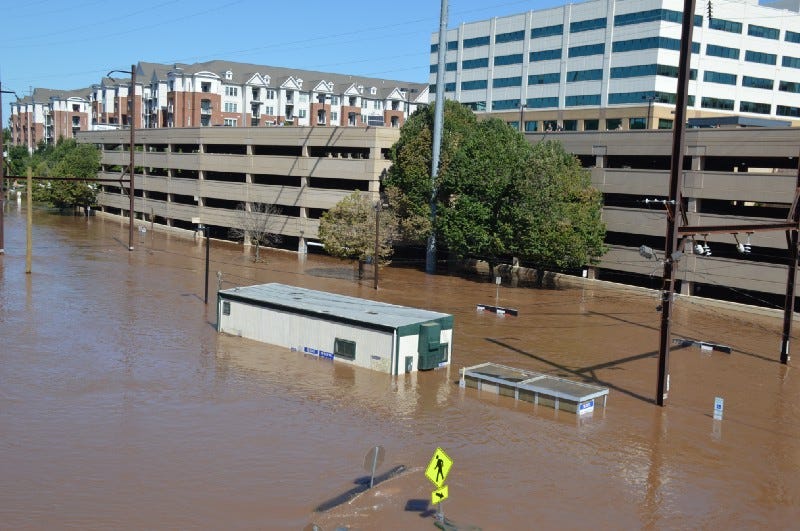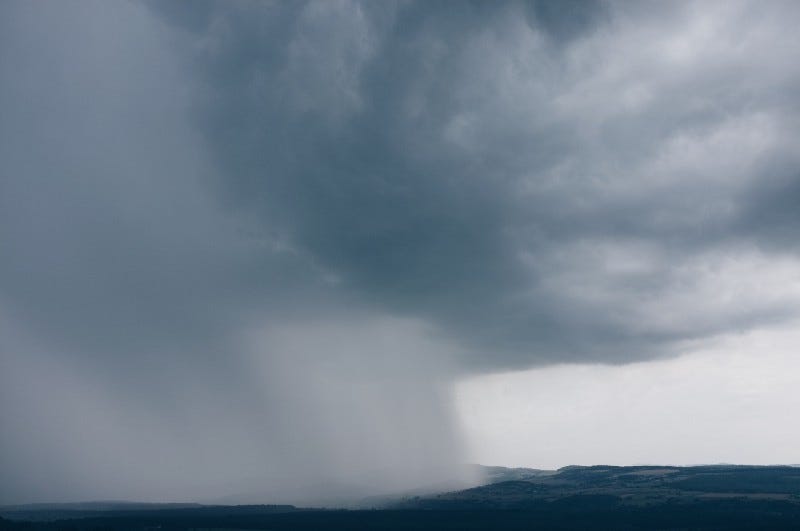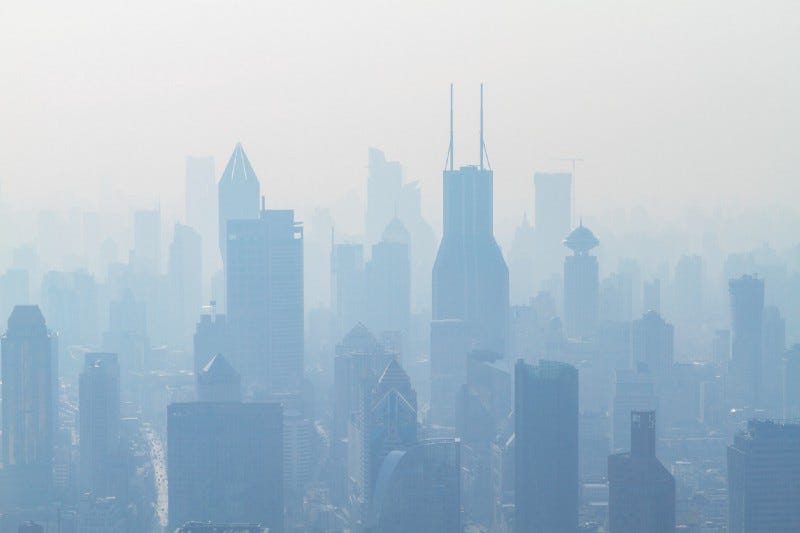Hurricane Ida wreaks havoc across the US
Across the country, people are grappling with a harsh reality: We’re not ready for a climate-changed world.
We hope everyone had a fun, relaxed Labor Day!
Welcome to Planet Week, where we highlight the last week of environmental news and what it means for our Planet.
Last week, the Planet finally ditched leaded gasoline, a Syrian oil spill spread across the Mediterranean, and key swing voter Sen. Joe Manchin (D-WV) upended the Dems’ budget blueprint.
In case you missed it, here’s what else happened around the Planet:

Monday, August 30
Hurricane Ida wreaks havoc across the US
Early last week, Hurricane Ida, a category 4 storm, slammed into Louisiana, leaving 1 million residents without power, including the whole city of New Orleans (we covered the storm’s landfall in our previous newsletter). But that was only the beginning of Ida’s destructive path.
Throughout the week, Hurricane Ida swept north, bringing with it catastrophic flooding, tornadoes, and power outages. In only several hours, inches of rain fell on New York, New Jersey, Connecticut, and Pennsylvania, inundating roadways, subways, and houses and killing at least 45 people, mostly by drowning in homes and cars.
As these areas recover, we come away with several lessons: In New Orleans, the levees held, but widespread power outages exposed weaknesses in the grid. Along the Gulf, oil companies were exposed, with oil spills creating even more problems. And across the country, people are grappling with a harsh reality: We’re not ready for a climate-changed world. The New York Times has analysis and updates.
Tuesday, August 31
California wildfires continue to spread
California can’t catch a break. The Golden State continues to face record wildfires, all made worse by a decades-long megadrought. Already, this year’s blazes have scorched 142,477 acres in the state, three times more land than this time last year.
Last week, the Caldor Fire spread into Nevada, forcing the evacuation of resort areas near popular getaway Lake Tahoe. To increase public safety, the U.S. Forest Service has now closed all national forests for at least two weeks, including over the recent Labor Day weekend.
Wednesday, September 1
UN: Expect more weather disasters
Unfortunately, wildfires aren’t the only reality of our climate-fueled future. Extreme weather disasters, like hurricanes, heatwaves, and floods, will continue to increase because of climate change, finds a new United Nations report.
The report finds that climate and weather disasters have become seven times more costly over the last 50 years, with hurricanes being the most expensive type of disaster. Over that time, climate disasters have also increased fivefold.
The good news? Climate adaptation measures, like early-warning systems, are saving lives: The number of deaths from climate and weather disasters decreased nearly three times between 1970 and 2019. The Independent has the story.
Nearly a third of trees face extinction
Trees are in trouble. According to a new report from Botanic Gardens Conservation International, 30% of the Planet’s 60,000 species of trees face extinction — largely from invasive species and disease, deforestation (mostly from agriculture and logging), and, of course, climate change.
But as dire as the report sounds, it also offers five ways to turn things around, including extending protected areas, expanding tree-planting initiatives, and increasing funding for conservation.
“This report is a wake up call to everyone around the world that trees need help,” said Paul Smith, BGCI secretary-general, in a statement. “Every tree species matters — to the millions of other species that depend on trees, and to people all over the world.” The BBC has more.
Air pollution shaves years off life expectancy
The average person is losing 2.2 years of life expectancy because of air pollution, according to a new report. For billions, however, it’s more like six years — making air pollution a greater killer than smoking, car crashes, or HIV/AIDS.
Indians, especially those in the capital of Delhi, are losing the most. In fact, if pollution was reduced to meet the World Health Organization guidelines, Indians would live an average of nine years longer. Axios broke down the findings.
Thursday, September 2
Melting ice is driving polar vortexes
Remember February’s Texas freeze? New research blamed that record cold front, which left 30 people dead and millions without power, on climate change.
Specifically, the research links the melting Arctic to winter extremes in the U.S. (and parts of Russia, for that matter). As the Arctic melts, the changes in sea ice and snowfall disrupt the jet stream, a thin band of strong wind that circles the north pole, and pushes frigid cold air south.
“[These cold waves are] going to happen again, and we think it’s maybe even going to happen more often because of what we are doing to the climate system,” researcher Jennifer Francis, told Inside Climate News. “Hopefully that will light a fire under some of the decision-makers in regions where they are susceptible to extreme events like this.”
EPA: People of color bearing the brunt of climate change
Just days after Ida tore across the country, the U.S. government officially acknowledged the disproportionate impacts people of color face and will continue to face as the climate crisis worsens.
The new Environmental Protection Agency report looked at climate impacts among socially vulnerable groups based on income, educational attainment, race and ethnicity, and age. Not only are the groups more likely to see heatwaves, flooding, and drought — they are also less able to prepare and recover. The Washington Post has more details.
Bonus
An unlikely hero in Bangladesh
By 2050, up to 13.3 million Bangladeshis could be displaced by climate change. Kutubdia Island, in particular, is already feeling the pressure, with its fast receding shoreline.
But the island may also hold an unlikely solution: Oyster-encrusted reefs calm waves before they reach the shore and protect against coastal erosion. BBC Future Planet has the full story.
Have a great week,
Brandon and Sam







